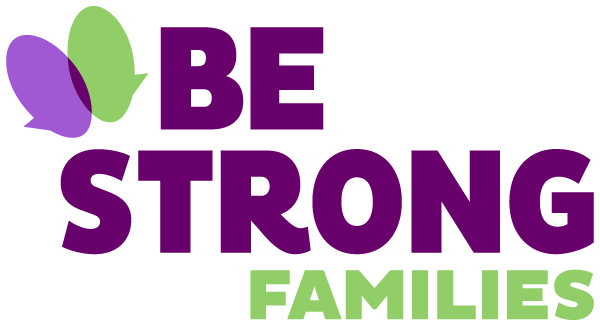2019 Parent Café Highlights
A new decade has arrived and has given us 20-20 vision on the year we just left. Be Strong Families’ efforts in expanding the reach of Parent Cafés across the country have produced monumental results!
Be Strong Families Parent Cafés build collective resilience by promoting Protective Factors using a culturally responsive format. Parent Cafés build upon the inherent strength and wisdom within families and communities through semi-structured conversations held in community settings. The conversations tap into people’s inherited memories of sharing wisdom in collective settings (e.g. on the front porch, at the kitchen table, at the plaza, or in talking circles). The BSF Parent Café is not expert-led, but, instead, centered on creating an emotionally safe “container” for parent-to-parent peer support and peer learning.
The Be Strong Families Café model also offers a leadership pathway for those interested and opportunities for parents and community members to collaborate with agency staff, re-weaving a relationship of trust among community members, and between community members and host organizations. The majority of agencies hosting Parent Cafés across the nation include early childhood centers, schools and family support/resource centers. The model has also been adopted by child welfare departments and mental health departments seeking strengths-based methods for engaging parents and communities.
Throughout 25 states in 2019, we trained a whopping 1,500 people to deliver Parent Cafés in their communities. We estimate that more than 4,500 Parent Cafés were hosted nationwide by these new trainees. In addition, the Facebook Group for our Café Community of Practice (a national network of Café hosts and their teams who have been trained on the BSF Parent Café model) topped 1,000 members, and the average attendance at our monthly Parent Café Success Exchange webinars increased by 35%. Wow!
Last year, we welcomed Certified Training Partners—organizations deputized to train others on hosting Parent Cafés—in Maryland, Indiana, and Merced County, CA. They join six other Certified Training Partner Agencies invested in the sustainability and long-term success of Be Strong Families Parent Cafés throughout their region.
In early 2019, Be Strong Families launched the National Parent Café Evaluation system to document the impact of Parent Cafés. Last year, we collected and analyzed feedback from nearly 2,500 participants who attended over 400 Parent Cafés. The aggregated data we collected from participating agencies will be shared in an annual report to be completed in the coming weeks. We also used this data to provide individualized reports for agencies facilitating Cafés, and to highlight their successes and opportunities for growth. The reports include direct feedback from Café participants that speaks to the positive changes generated through the Cafés:
“We talk more and get out and do things without phones and computers.”
“I stopped smoking and have learned different stress reduction techniques.”
“I talk more positively to my family.”
“I continue to work on ways to build all relationships stronger.”
“I now reach out for help when I need it.”
In 2019, we also introduced new Café resources including Swahili, French, and Chinese Parent Café decks and released A More Perfect Union Parent Café in a Box, a deck that focuses on how to explore the broader context of parenting in a complicated (and often unjust) world. We also began offering Café Agreements and Commitment Cards for sale in our online store.
We are excited to build on this foundation of success in 2020 and beyond with plans to release two new Café decks: Recovering Together Cafés for people struggling with addiction and those who love them and a deck to host conversations among Parents of Teens.
For more information, visit our website at www.bestrongfamilies.org and “like” our page on Facebook!


